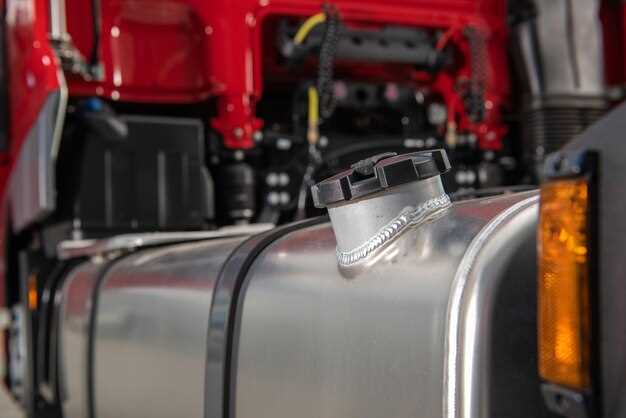
In today’s world, where fuel prices are continually fluctuating and environmental concerns are at the forefront, the need for fuel-efficient vehicles has never been more pressing. This is especially true for pickup trucks, known for their durability and capability, but often critiqued for their fuel consumption. As a smart driver, it’s essential to balance power and performance with economy.
Choosing a fuel-efficient pickup truck can lead to significant savings at the pump while also reducing your carbon footprint. Fortunately, many manufacturers have recognized this demand and are now producing models that deliver both strength and exceptional fuel efficiency. This article will explore some of the best options available, providing insights into the top trucks that ensure you maximize your driving experience without sacrificing economy.
Whether you use your truck for work, leisure, or daily commuting, understanding the latest technologies, engine options, and design innovations can help you make an informed decision. Join us as we delve into the realm of fuel-efficient pickup trucks that cater to the needs of smart drivers who prioritize both power and economy.
Top Five Picks for Maximum Miles per Gallon
For those seeking to balance power and efficiency, selecting the right pickup can significantly impact fuel economy. Here are the top five pickups that stand out for their impressive miles per gallon (MPG) ratings:
- Ford Ranger
- Engine: 2.3L EcoBoost I-4
- Fuel Efficiency: Up to 26 MPG combined
- Notable Features: Rear-wheel drive standard, optional 4WD, strong towing capacity.
- Chevrolet Colorado
- Engine: 2.5L I-4
- Fuel Efficiency: Up to 24 MPG combined
- Notable Features: Versatile cargo bed options, comfortable interior.
- Ram 1500 (Diesel)
- Engine: 3.0L EcoDiesel V6
- Fuel Efficiency: Up to 26 MPG combined
- Notable Features: Smooth ride quality, advanced technology interface.
- Toyota Tacoma
- Engine: 2.7L I-4
- Fuel Efficiency: Up to 21 MPG combined
- Notable Features: Excellent off-road capabilities, strong resale value.
- Nissan Frontier
- Engine: 3.8L V6
- Fuel Efficiency: Up to 24 MPG combined
- Notable Features: Modern design, comfortable cabin space.
These pickups not only deliver on fuel efficiency but also provide the reliability and performance that smart drivers require. When choosing a pickup, consider both fuel consumption and the specific needs of your lifestyle.
How Engine Types Influence Fuel Consumption in Pickups

The type of engine in a pickup truck is a crucial factor that significantly impacts its fuel economy. Different engine configurations, including inline engines, V-shaped engines, and turbocharged options, offer varying efficiency levels that can cater to diverse driver needs.
Inline Engines: These engines, typically consisting of four or six cylinders arranged in a straight line, provide a balance between power and fuel efficiency. Four-cylinder pickups are particularly known for their economy, as they generally consume less fuel during city driving and highway cruising, making them ideal for those prioritizing fuel savings.
V-Shaped Engines: Common in larger and more powerful pickups, V6 and V8 engines tend to deliver higher performance but can compromise fuel economy. While V8 engines offer more towing capacity and acceleration, they often lead to increased fuel consumption, particularly in urban settings. However, advancements in technology, such as cylinder deactivation, help mitigate some of this consumption, allowing these engines to operate more efficiently under lighter loads.
Turbocharged Engines: Turbocharged options are gaining popularity due to their ability to enhance power without significantly increasing fuel consumption. These engines can deliver turbo lag-free performance and higher torque at lower RPMs, which allows for lighter engines that maintain fuel efficiency. Smart drivers who opt for pickups with turbocharged engines often find a favorable balance between power and economy.
Additionally, hybrid and electric variations are emerging in the pickup segment, promising substantial improvements in fuel consumption. These models utilize battery power to assist the engine, reducing reliance on traditional fuel sources and thus promoting greater efficiency in everyday driving conditions.
Ultimately, understanding how engine types influence fuel consumption is essential for making informed decisions when selecting a pickup. Drivers can maximize their fuel economy by choosing an engine that aligns with their specific needs and driving habits, ensuring a smarter, more efficient driving experience.
Real-World Fuel Economy: User Reviews and Testimonials

When considering fuel-efficient pickup trucks, it’s essential to look beyond manufacturer claims and explore real-world user experiences. Many drivers share their insights regarding fuel economy, providing valuable information to prospective buyers. These testimonials often highlight how specific models perform under various conditions, including city driving, highway cruising, and heavy loads.
For instance, owners of the Ford F-150 PowerBoost Hybrid frequently mention its impressive fuel efficiency, noting that they achieve around 24 mpg in city driving and up to 24 mpg on the highway. Users appreciate the seamless transition between electric and gas power, which enhances both economy and performance. Many state that the hybrid system excels in reducing fuel consumption during short trips and stop-and-go traffic.
Another popular choice is the Chevrolet Silverado with the Duramax diesel engine. Drivers report an average of 30 mpg on the highway, a figure that often exceeds expectations. Testimonials indicate that this truck maintains its fuel economy even when towing a trailer, showcasing robust capability without sacrificing efficiency.
Ram 1500 owners also offer positive reviews regarding their trucks’ fuel economy, particularly models equipped with the eTorque mild hybrid system. Users cite real-world fuel figures around 23 mpg in urban environments and around 32 mpg on long journeys, illustrating the effectiveness of hybrid technology in enhancing fuel efficiency while maintaining power.
Additionally, compact models like the Toyota Tacoma receive praise for their practicality. Despite being a smaller pickup, many users highlight its fuel economy, averaging around 20 mpg in the city and 24 mpg on the highway, making it a sensible choice for those looking for a balance between capability and economy.
User reviews often stress the importance of regular maintenance and driving habits, suggesting that responsible driving can further enhance fuel economy across all models. Testimonials reflect a consensus that adopting eco-friendly driving practices, such as steady acceleration and avoiding unnecessary idling, can dramatically improve overall fuel performance.
In summary, real-world user reviews provide critical insights into the fuel economy of various pickup trucks. By considering these testimonials alongside official ratings, drivers can make informed decisions that align with their efficiency expectations and driving requirements.




